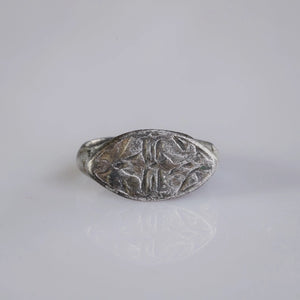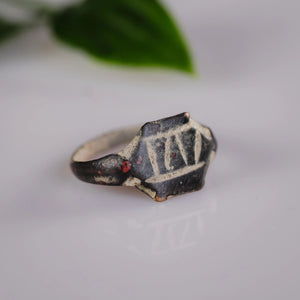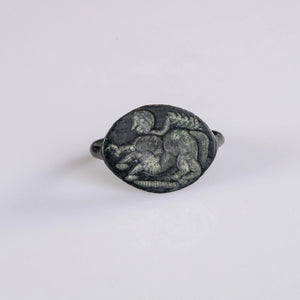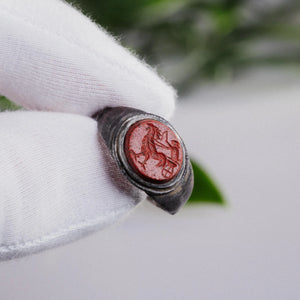Interesting facts
The Mysterious Code Name "Duchess"
“Why is Archer called Duchess?” — this intriguing question invites us into the playful yet complex universe of the FX TV show Archer. Whether you're a devoted fan or a casual viewer, the origin of this mysterious code name sparks curiosity. It’s more than just a clever alias; it’s a window into the show’s layered storytelling, intricate character dynamics, and its unique take on identity and simulation.
Sterling Archer and His World of Espionage
At the heart of the series is Sterling Archer — the charming, reckless, and deeply flawed spy whose sharp wit hides a tangle of complicated emotions, especially the fraught relationship with his mother, Malory Archer. In the world of espionage that Archer inhabits, code names are not just functional; they are badges of identity, each carrying a story or a subtle nod to the character behind the mask. Among these code names, “Duchess” stands out, colored with a certain elegance and a curious backstory.
The Origins of "Duchess"
Digging a little deeper, the origins of “Duchess” trace back to Malory Archer’s own life — a detail that quietly colors the series’ narrative. Malory, the commanding head of the spy agency ISIS and Archer’s mother, once had a dog named Duchess. This isn’t just a throwaway detail; it captures a softer, more vulnerable side of Malory, someone often portrayed as tough and emotionally distant.

An Ambiguous Choice
But the story isn’t presented as straightforwardly affectionate. Within the show, Malory insists the code name was randomly assigned by a computer, a claim that adds an intriguing layer of ambiguity. This contradiction asks us to question: Is the “random” computer selection a convenience, or could it reflect Malory’s subconscious influence? Or perhaps the writers are playfully suggesting that no choice is entirely without meaning, even when it seems arbitrary. This ambiguity enriches the name’s resonance, making “Duchess” simultaneously personal and impersonal, deliberate and accidental.
The Original Vision and Broader Themes
Adding another twist, during the show’s development, “Duchess” was actually the working title for the series. This choice reveals just how central the name was to the creators' original vision. As a working title, “Duchess” likely represented more than a code name — it captured the tone and contradictions the show embodies. The word suggests elegance and class, while the series itself often revels in chaotic, irreverent humor. It’s a perfect metaphor for a world where sophistication and silliness collide.
If we zoom out even further, “Duchess” connects with Archer’s broader exploration of identity and reality. The show famously experiments with its own narrative boundaries — shifting between simulations, flashbacks, and alternate realities. In later seasons, entire arcs exist as imagined constructs inside a character’s mind. Against this backdrop, “Duchess” takes on new meaning. It’s no longer just a pet’s name or a random codename; it embodies the fluidity and constructed nature of identity that the series loves to challenge.
Beyond the Screen
This multi-layered symbolism transforms “Duchess” into a rich narrative device. It draws a subtle line from Malory’s personal history to the show’s bigger themes: the tension between who we are, who we pretend to be, and who we might become. When Sterling Archer answers to “Duchess,” he steps into a persona that’s both intimately tied to his mother’s emotional world and caught within the shifting realities of their spy-filled lives.
In many ways, “Duchess” captures the delicate balance Archer strikes between comedy and pathos, between cold espionage and deeply human stories. It reminds us that every code name has a story, often intertwined with memory, relationship, and the search for meaning in a chaotic world.
Beyond the show’s universe, this resonates with a familiar aspect of real life: the way people adopt nicknames or personas that sometimes seem random, but often carry hidden histories. These names tether us to our pasts, to those we care about, or to identities we craft for ourselves. Just as Malory’s dog represented comfort and connection, “Duchess” offers Sterling a symbol of stability and identity amid his unpredictable existence.
Have you ever wondered about the real-life inspirations behind your favorite TV characters?
Just like "Duchess" in Archer, many fictional characters are crafted with layers of storytelling, often drawing from creators' personal experiences or historical elements. It’s fascinating to consider how deep the rabbit hole goes for many iconic TV characters. These inspirations might be subtle nods or full-blown tributes to events, people, or even pets in a creator’s life, adding layers of depth and relatability that fans might not immediately notice. Exploring these elements can enrich the viewing experience, offering new perspectives and connections that mirror the complex nature of identity and narrative explored within shows like Archer.
For fans, understanding this adds a layer of depth, transforming a quirky detail into a meaningful piece of the series' storytelling puzzle. It invites us to think about the power of names, and the narratives we create around them — not only on screen but in our own lives.
Historical Connections
Why not embrace your own rich history with a piece of wearable art from auroraantiqua.store? Our 'Diana' - Roman Silver Intaglio Ring wears the legacy of its ancient past, just as Sterling carries the narrative of "Duchess." Discover something that lets you wear history with pride and admiration.
Why did Archer get the code name Duchess?
Archer's code name "Duchess" traces back to his mother Malory's dog, adding depth to the show's personal history, while also serving as a nod to the narrative's playful complexity.
Is Duchess a random code name in Archer?
In the show, it's suggested as randomly assigned by a computer, but this ambiguity invites viewers to explore deeper meanings tied to Malory's influence and the show's themes of identity.
How does the code name Duchess relate to the show's themes?
"Duchess" integrates with Archer's themes of identity and reality, illustrating personal stories and broader explorations of who we are and might become, akin to characters finding their narrative place.




